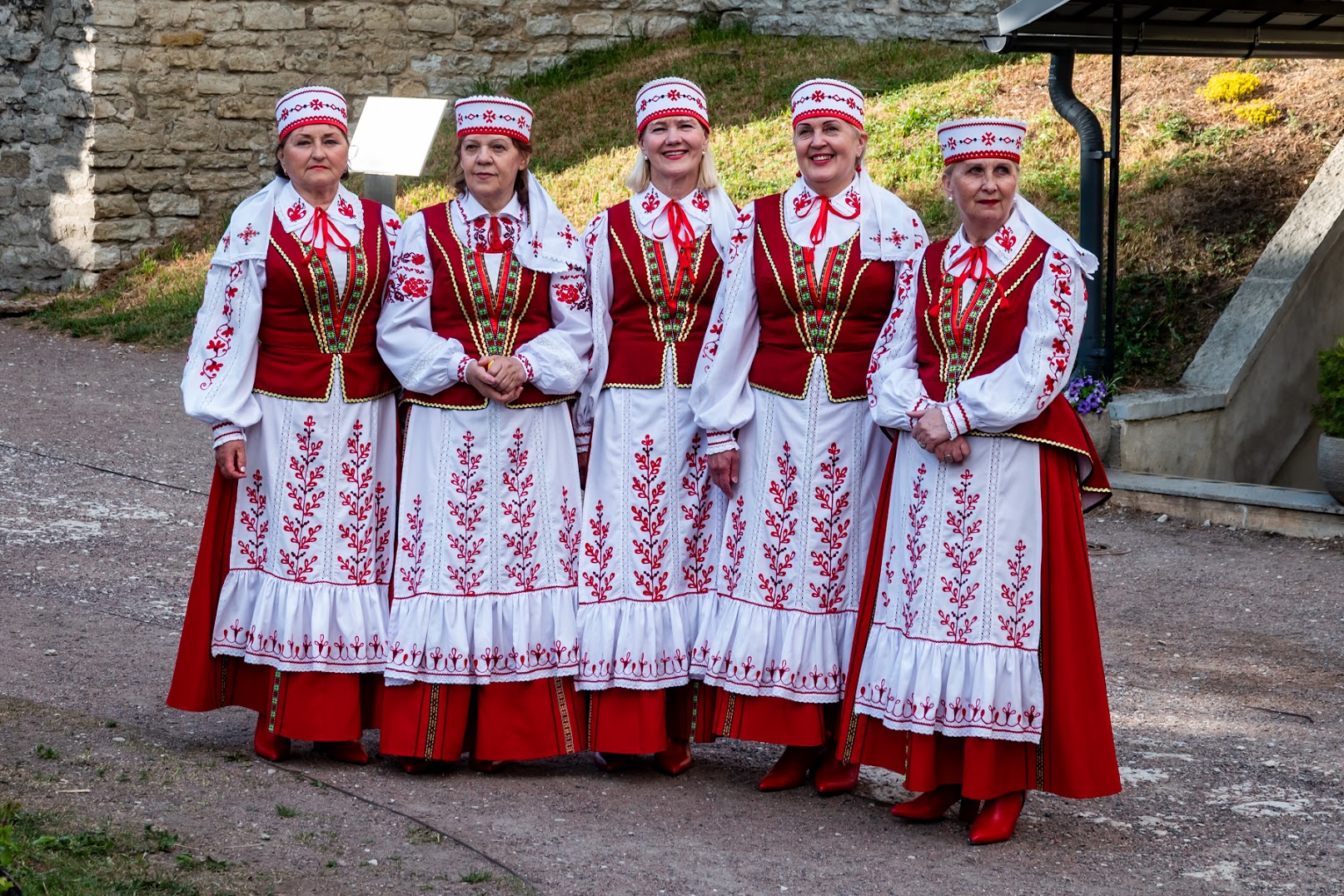
In 1974, Tatyana Nizhnik (on the picture first from left) came to Estonia to support her sister, who was in a complicated personal situation. What was planned as a non-permanent stay became living in a new land for half a century. Having embraced Estonian culture, Tatyana remains faithful to her Belorussian roots. The Old Town of Tallinn with its rich history and unique beauty always seemed to her particularly fascinating. Today, she is actively sharing the treasures of her culture with the local community.
My name is Tatyana Nizhnik. I moved to Estonia on 3 September 1974 and have been living here for almost 50 years. Initially, I came to support my sister, who then needed help, but I ended up staying in Estonia and have been working as a chief accountant for a long time. Already for 27 years, I have been managing the Belorussian Cultural Society. My responsibilities include the organisation of cultural events and participation in various performances with my ensemble Ljanok (on the picture).
Our society actively participates in the cultural life of Estonia, performing in Tartu, Rakvere, Narva, Sillamäe, and Tallinn. My job is the organisation of events and signing Belorussian folk songs, which helps me stay connected with my home culture and share it with Estonian society. I am very enthusiastic about the popularisation of Belorussian traditions and holidays in Estonia, as I consider it a contribution to the cultural diversity of the country.
Please describe how you see our Estonia.
To me, Estonia is a beautiful green country with many marshes, forests, islands, and blue lakes. It is a lovely and tranquil land with a rich nature.
What do you like in Estonia?
I like the tranquillity and the green nature of Estonia. There are no big cities but only cozy towns and villages. The nature reminds me of Belarus a lot, which is very pleasant.
What surprises you in Estonia?
I am surprised by people’s calmness and self-restraint. When I just came, I was especially impressed by the beauty of the Old Town – none of such architecture has survived in Belarus.
What do you find unexpected or unusual in Estonia?
To me, it was unexpected how private and reserved people here were compared to Belarus. In Belarus, life is much more emotional and open, whereas here, people often hide their feelings and worries deep inside.
What aspects of your culture could be implemented in Estonia?
I would like to introduce our folk holidays and events, such as Dozhinki or the harvest festival, to people here. It would help children and youth to better understand rural life and learn how to enjoy simple things.
What do you miss most in Estonia? / What is lacking in Estonia?
I miss being surrounded by a wide circle of friends and acquaintances. I miss the mutual understanding and warmth that I got used to in Belarus. I wish we had more parties and festivals and live communication in Estonia.
How does your stay here enrich the life in Estonia?
I think I contribute to life in Estonia by enhancing its cultural diversity. The exchange of traditions and habits between nations helps better understand and value different cultures.
What Estonian habits have you adopted for yourself?
I adopted the habit of being more reserved and quiet. In Estonia, I learned how to hide my emotions; it was not easy but proved to be a useful skill.
What is your favourite Estonian food?
My favourite Estonian food is bread soup. I was amazed when I learned of it and I liked it a lot. The most delicious is bread soup with whipped cream.
What is your favourite Esonian song?
I grew up listening to old songs of Tõnis Mägi and Georg Ots.
How could you describe Estonians?
Estonians are private, reserved, and well-balanced people. They often keep their emotions deep inside, which distinguishes them from more open and emotional people of other countries.
